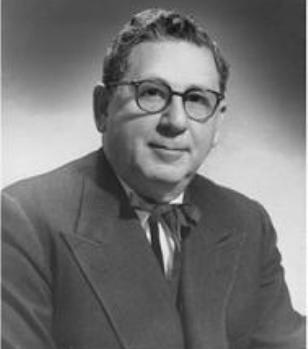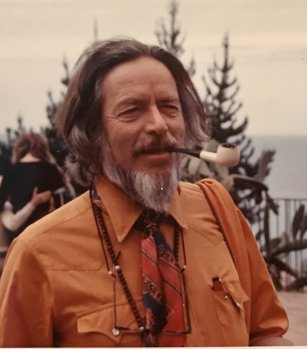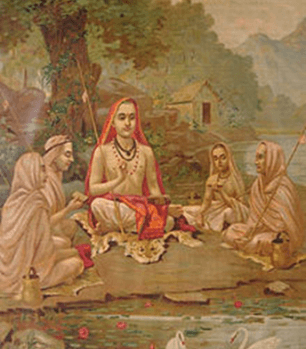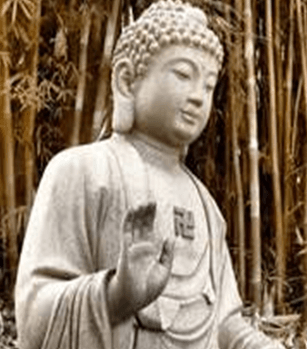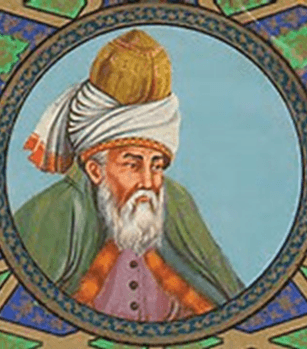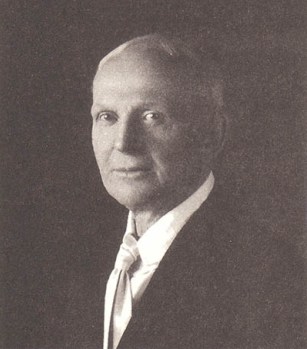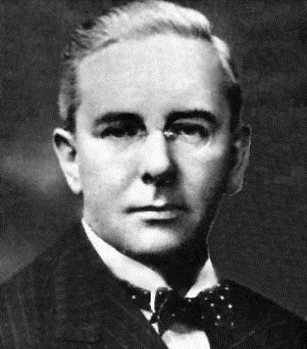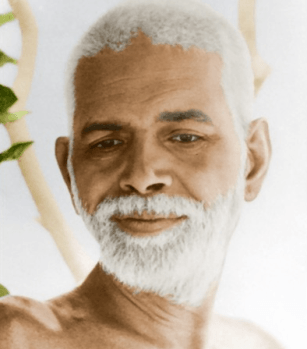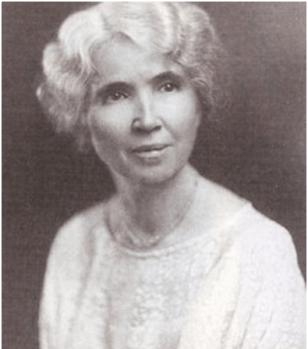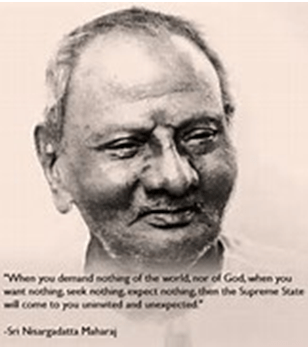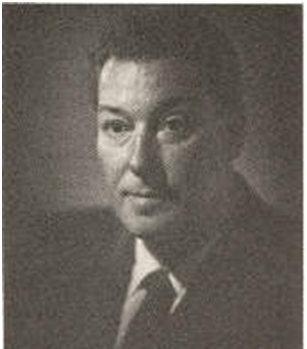- Joel Goldsmith 1882 – 1964 Joel Solomon Goldsmith was an American spiritual author, teacher, spiritual healer, and modern-day mystic. He taught a mystical message based on spiritual principles revealed to him. He called this message “The Infinite Way” and founded The Infinite Way movement. The purpose of the Infinite Way message is to bring one to the point of preparation for the full experience of this indwelling Presence and the realization that this Presence is one’s true identity. In that state of illumination, there is rest from human effort and life is lived by the Grace of this Presence. In the Infinite Way, a spiritual healer does not deal with the human picture and try to change it. “We go right to the center of being, and there recognize Christ, the Spirit, the presence and power of God,” Joel says. “As we do that, we do not heal human beings; we do not enrich them, although that is the way in which it appears to the world. What we do is to bring to light their spiritual identity–that which has always been there, but which has seemed to have disappeared.” Books: Please see the Acropolis Books website for a listing of books. www.JoelGoldsmithBooks.com www.joelgoldsmithstreaming.com Quotes ~ You govern your surroundings by the nature of what is taking place in your consciousness. Rest in the deep clear […]
- Alan Watts 1915 – 1973 Alan Wilson Watts was a British writer, speaker and philosopher known for interpreting and popularizing Buddhism, Taoism, and Hinduism for a Western audience. Born in Chislehurst, England, he moved to the United States in 1938 and began Zen training in New York. Although best known for popularizing Zen and Buddhist teachings to a Western audience, Watts wrote on a variety of other topics including personal identity, public ethics, the meaning of life, and the relation each person has with the universe. AlanWatts.org is a living online library and museum of the works of Alan Watts. Curated by Alan’s son, Mark Watts, this website is the definitive online resource. www.alanwatts.com Books ~ Please see the website for a listing of books and downloads. During his lifetime, Alan Watts wrote 25 books on the topics of philosophy, the psychology of religion, and mystical experience. He also wrote more than a dozen booklets and contributed chapters to a plethora of books. Since his passing in 1973, nearly 40 additional books have been published to date, including writings from his early years and works derived from his numerous lectures. Watts also wrote many popular and academic articles, and much has been published about him. Quotes ~ Trying to define yourself is like trying to bite your own teeth. The only way to make sense out of change is […]
- Shankara 788 – 820 Shankara was born in a Brahmin family circa 788 AD in a village named Kaladi on the banks of the river Purna (now Periyar) in the Southern Indian coastal state Kerala. His parents, Sivaguru and Aryamba, had been childless for a long time and the birth of Shankara was a joyous and blessed occasion for the couple. Legend has it that Aryamba had a vision of Lord Shiva and promised her that he would incarnate in the form of her first-born child. Shankara spread the tenets of Advaita Vedanta, the supreme philosophy of monism to the four corners of India with his ‘digvijaya’ (the conquest of the quarters). The quintessence of Advaita Vedanta (non-dualism) is to reiterate the truth of reality of one’s essential divine identity and to reject one’s thought of being a finite human being with a name and form subject to earthly changes. According to the Advaita maxim, the True Self is Brahman (Divine Creator). Brahman is the ‘I’ of ‘Who Am I?’ The Advaita doctrine propagated by Shankara views that the bodies are manifold but the separate bodies have the one Divine in them. The phenomenal world of beings and non-beings is not apart from the Brahman but ultimately become one with Brahman. The crux of Advaita is that Brahman alone is real, and the phenomenal world is […]
- Gautama the Buddha 500 BC Gautama Buddha, also known as Siddhartha Gautama, Shakyamuni, or simply the Buddha, was a sage in whose teachings Buddhism was founded. He is believed to have lived and taught mostly in eastern India sometime between the sixth and fourth centuries BCE. The word Buddha means “awakened one” or “the enlightened one.” “Buddha” is also used as a title for the first awakened being in an era. In most Buddhist traditions, Siddhartha Gautama is regarded as the Supreme Buddha (Pali sammāsambuddha, Sanskrit samyaksaṃbuddha) of our age. Gautama taught a Middle Way between sensual indulgence and the severe asceticism found in the Sramana (renunciation) movement common in his region. He later taught throughout regions of eastern India such as Magadha and Kośala. Gautama is the primary figure in Buddhism, and accounts of his life, discourses, and monastic rules are believed by Buddhists to have been summarized after his death and memorized by his followers. Various collections of teachings attributed to him were passed down by oral tradition, and first committed to writing about 400 years later. A Buddha is a person who is completely free from all faults and mental obstructions. Because he has awakened from the sleep of ignorance and has removed all obstructions from his mind, he knows everything of the past, present, and future, directly and simultaneously. Moreover, Buddha has […]
- Rumi 1207 – 1273 Konya, Turkey Jalāl ad-Dīn Muhammad Balkhī, also known as Jalāl ad-Dīn Muhammad Rūmī, Mevlana or Mawlānā, Mevlevi or Mawlawī, and more popularly in the English-speaking world simply as Rumi, was a 13th-century Persian poet, jurist, theologian, and Sufi mystic. Rumi’s importance is considered to transcend national and ethnic borders. Iranians, Turks, Afghans, Tajiks, and other Central Asian Muslims as well as the Muslims of South Asia have greatly appreciated his spiritual legacy in the past seven centuries. His poems have been widely translated into many of the world’s languages and transposed into various formats. He has been described as the “most popular poet in America” and the “best selling poet in the US”. www.rumi.net Books ~ “The Essential Rumi,” “Masnavi,” “Fihi Ma Fihi,” Love Ripening,” “Diwan-e Shams-e Tabrizi” Quotes ~ Your task is not to seek for love, but merely to seek and find all the barriers within yourself that you have built against it. Everyone has been made for some particular work, and the desire for that work has been put in every heart. Everything that is made beautiful and fair and lovely is made for the eye of one who sees. Recommended Reading ~ The Essentials of Rumi
- Charles Fillmore 1854 – 1948 Charles Fillmore founded Unity, a church within the New Thought movement, with his wife, Myrtle Page Fillmore, in 1889. He became known as an American mystic for his contributions to spiritualist interpretations of biblical Scripture. An ice skating accident when he was ten broke Fillmore’s hip and left him with lifelong disabilities.[1] In his early years, despite little formal education, he studied Shakespeare, Tennyson, Emerson and Lowell as well as works on spiritualism, Eastern religions, and metaphysics.[2][3] In 1889, Charles left his business to focus entirely on a prayer group that would later be called ‘Silent Unity’. That same year he began publication of a new periodical, ‘Modern Thought’, notable among other things as the first publication to accept for publication the writings of the then 27-year-old New Thought pioneer William Walker Atkinson. In 1891, Fillmore’s ‘Unity’ magazine was first published. One hundred twenty-five years ago, Myrtle and Charles Fillmore published Modern Thought magazine and unknowingly birthed a worldwide spiritual movement. They adopted the growing city of Kansas City, Missouri, as their home. They embraced the purpose of encouraging spiritual progress. In 1889, the middle-aged couple found a new sense of resolve. Myrtle had experienced a healing after being diagnosed with tuberculosis. Prayer was central to Myrtle’s healing practice, directing life-affirming words to “every life-center” in her body. With daily meditation, Charles left behind the pain of a childhood hip injury. An increasing number of friends and acquaintances took notice. […]
- Emmet Fox 1886-1951 One of the most influential New Thought authors of the 20th Century Emmet Fox was born in Ireland on July 30, 1886, was educated in England, pursued his spiritual career mostly in the United States, and died in France on August 13, 1951. His father, who died before Fox was ten, was a physician and member of Parliament. Fox attended Stamford Hill Jesuit college near London, and became an electrical engineer. However, he early discovered that he had healing power, and from the time of his late teens studied New Thought. He came to know the prominent New Thought writer Thomas Troward. Fox attended the London meeting at which the International New Thought Alliance was organized in 1914. He gave his first New Thought talk in Mortimer Hall in London in 1928. Soon he went to the United States, and in 1931 was selected to become the successor to the James Murray as the minister of New York’s Church of the Healing Christ. Fox became immensely popular, and spoke to audiences in some of the largest halls in the city. He was ordained in the Divine Science branch of New Thought. While Emmet Fox lived he addressed some of the largest audiences ever gathered to hear one man’s thoughts on the religious meaning of life. His books and pamphlets have been distributed to over three million people and […]
- Sri Ramana Maharshi 1879 – 1950 Ramana Maharshi is widely acknowledged as one of the outstanding Hindu gurus of modern times. He was born Venkataraman Iyer, in Tiruchuli, Tamil Nadu, South India, and given the name Bhagavan Sri Ramana Maharshi in 1907, by one of his first devotees, Ganapati Muni. This would be the name by which he became known to the world. Books: “Be As you Are – The Teachings of Sri Ramana Maharshi,” “The Spiritual Teaching of Ramana Maharshi” www.sriramanamaharshi.org Ramana Maharshi Books Download Quotes ~ When there are thoughts, it is distraction: when there are no thoughts, it is meditation. Our own self-realization is the greatest service we can render the world. The degree of freedom from unwanted thoughts and the degree of concentration on a single thought are the measures to gauge spiritual progress. Recommended Reading ~ Be As You Are – The Teaching of Sri Ramana Maharshi The Spiritual Teaching of Sri Ramana Maharshi
- Imelda Octavia Shanklin 1865 – 1953 Imelda Octavia Shanklin served at Unity School from about 1910 until 1930. She was ordained as a Unity Church minister in 1918. Her metaphysical activities embraced lectures, class work, and contributions to magazines and other publications. Some of her Unity published writings include the following: “Selected Studies,” 1921, later translated as “All Things Made New” in “Key to Life Bookshelf,” 1926. “The Sayings of Jesus Christ,” 1923. “Treasure Box,” 1927 and “What Are You”, 1929. While at Unity, she was editor-in-chief and also editor of “Wee Wisdom” from 1922 until 1930, at which time she left Unity to devote her time for several years to the preparation of a metaphysical study called “The Cosmic Adventure.” This is an analytical study of the Bible, of which one commentator said the “conception of the Dweller, the soul, and the Adventure is both clear and illuminating, adding something important to the understanding of the symbology of the Bible.” Her last oral teachings were given in connection with Unity work in Cedar Rapids, Iowa. Quotes ~ Prayer is not in posture; it is not in a given form of phrases. Prayer is a relationship between you and God. When you rule your mind you rule your world. When you choose your thoughts you choose results. Your thoughts are the tools with which you carve […]
- Sri Nisargadatta Maharaj 1897 – 1981 When asked about his biographical details, Sri Nisargadatta Maharaj used to say “I was never born”, for he does not identify himself with his body. He identified himself only with the eternal and pure beingness. Sri Nisargadatta Maharaj was born in March 1897, on the day the birthday of Lord Hanuman. In honor of Lord Hanuman, he was given the name ‘Maruti’. Nisargadatta’s father, Shivrampant, worked as a domestic servant in Mumbai and later as a petty farmer in Kandalgaon, a small village in the back-woods of Ratnagiri district of Maharashtra. Mariti’s family followed the traditional Hindu culture. At the tender age of 18, in the year 1915, Maruti’s father passed away. After the death of his father, Maruti followed his oldest brother to Bombay. Through realizing the shortcomings of a totally unworldly life and the greater spiritual fruitfulness of dispassionate action, he eventually returned to his family in Mumbai in 1938, where he spent the rest of his life. The publication in 1973 of I Am That, an English translation of his talks in Marathi by Maurice Frydman, brought him worldwide recognition and followers, especially from North America and Europe. www.nisargadatta.org Books: “I Am That”, “Prior to Consciousness” Quotes ~ When you demand nothing of the world, nor of God, when you want nothing, seek noting, expect nothing, then […]
- Neville Goddard 1905 – 1972 Neville Goddard, better known as just Neville, was one of the quietly dramatic and supremely influential teachers in the New Thought field for many years…In a simple, yet somehow elegant one-hour lecture, Neville was able to clarify the nature of God and God’s relationship to every person. He spoke of God in intimate terms as though he knew God very well, which he did. Joseph Murphy, a writer and lecturer, who studied with Neville in New York City, said of him: “Neville may eventually be recognized as one of the world’s great mystics,” Born on Barbados in the British West Indies, Neville was the fourth child in a family of nine boys and one girl. One day some of them were playing near an old wind-swept hut by the sea. A seer lived in the hut and told them their fortunes, The older sons would go into the professions, into medicine, into business. The predictions for them came true. The Goddard family is one of the most prominent and influential families on the island. www.neville-goddard.net. Can read excerpts online. Books: See website above of complete listing. Quotes ~ Nothing comes from without; all things come from within – from the subconscious. Man moves in a world that is nothing more or less than his consciousness objectified. “I will be” is a confession […]

